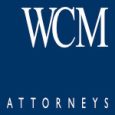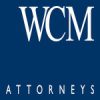Under Daubert, experts must have relevant qualifications to testify to relevant industry standards.
In McConn v Dollar General Corporation., 2022 WL 17750490 (W.D. Pa. Dec. 19, 2022), plaintiff claimed that when she attempted to remove a book from a bookcase in Dollar General, books began falling on her and a rack that holds the book became dislodged. In support of her claims, plaintiff served an expert report identifying a liability expert who opined in his report that Dollar General “deviated from accepted industry wide customs and safety practices in the retail industry.”
Defendant Dollar General contended that the expert was not qualified to testify as an expert in retail safety because he is not an engineer, has no degree in retail safety, and has no practical work experience, i.e. retail store management or retail risk management, which would qualify him to serve as a retail safety expert.
Plaintiff argued that the expert has a Master’s Degree in Advanced Management, a certificate in safety management and a certificate in OSHA Outreach Training. Plaintiff further argued that she is unaware of a specific degree an individual can obtain in “retail safety” but that the expert had conducted field research for “falling merchandise involving produce cases and falling glass bottles due to incorrect stacking.”
The court granted Dollar General’s Daubert Motion, reasoning that while the expert appeared to possess skills, knowledge, and experience in some aspects of safety, the breadth of his skills, knowledge, and experience do not satisfy this Court’s Daubert inquiry.This case stands for the proposition that simply reviewing store manuals cannot create expertise and that “jack-of-all-trade experts” are disfavored.
Thanks to Sarah Polacek for her contribution to this post. Please contact Heather Aquino with any questions.


